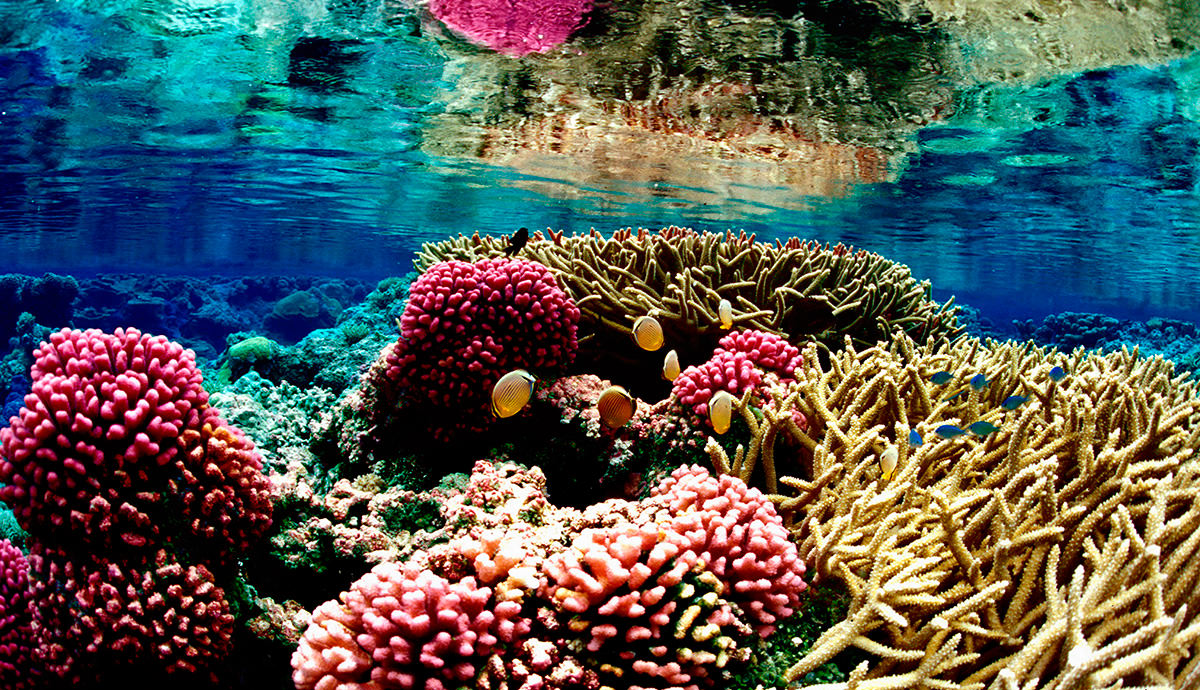March 29, 2016
New laws for the high seas: four key issues the UN talks need to tackle
The oceans are teeming with life and potential – but the high seas are still largely ungoverned.
United Nations negotiations begin today in New York on the elements of an international agreement to govern the conservation and sustainable use of the high seas.
Every country will have a seat at these inaugural negotiations on conservation beyond their borders. More than half of the world’s ocean lies outside national jurisdictions, and this vast wilderness is the legal equivalent of the Wild West.
Nations and corporations look beyond national boundaries for deep-sea minerals, new drug compounds and, of course, for fish to catch. Tensions can arise when these commercial interests overlap with one another, or with conservation efforts.
The new laws about to be agreed, under the existing UN Convention on the Law of the Sea, will aim to improve the current fragmented and industry-based governance of the high seas. Universal, coherent and sustainable regulations will be crucial to protect wildlife in the waters beyond national jurisdiction.
On the high seas, conserving wildlife will have a host of knock-on benefits, from climate stability to sustained productivity of fisheries and other ecosystems.
The exquisite diversity of marine life in the remote oceans fills some with wonder and inspires others with its potential. Discoveries such as Casper the “ghost octopus” show that we are finding new things all the time.
Beyond the simple fact of new and interesting species, the ocean’s wildlife also delivers essential global ecosystem services and the promise of new resources, like the breast cancer treatment inspired by the deep-sea sponge Halichondria okadai.
The need for new laws
With so much value in the oceans, this new global agreement is urgently needed to safeguard marine biodiversity in areas that are currently under-protected. These threats include climate change, ocean acidification, plastic pollution, noise, existing offshore mining and new activities such as marine geoengineering. The cumulative effect of these threats calls for caution in industrialising the deep.
In an area where no country has jurisdiction, will adversarial international power relations apply, or will countries be able to work together to protect the global commons?
Here are the key questions and challenges for negotiators to consider as they develop these historic laws:
Protected areas and no-fishing zones
Area-based management includes tools like marine protected areas and spatial restrictions on fishing. A key challenge for negotiators will be balancing existing rights to navigate, fish and research with competing uses and the responsibility to protect the marine environment.
Will there be sufficient political will from supportive states (the European Union; the 134 members of the G77; and Mexico, Australia and New Zealand) to make the laws strong enough? Or will commercial interests drive the negotiations?
Environmental impact assessments
Activities in the deep sea have the potential to cause grave damage to wildlife diversity. We still have much to learn about the impacts of such activities on marine ecosystems. How will these impacts be assessed and acted upon in the global wild west?
To sustain the integrity of ocean ecosystems and our food security, firm limits need to be put on human activities. The new laws need to require industries to prove that their activities have no significant adverse impacts.
Marine genetic resources
The genetic libraries of deep-sea organisms and the complex chemicals they produce could hold cures for diseases or inspire biotech breakthroughs. Research and innovation will be crucial if we are to benefit fully from marine genetic resources. But access to the remote deep sea is currently limited to a few countries with the requisite money and resources.
For industry, legal certainty is vital to investment. There is a legal gap relating to how the benefits of discoveries and commercial applications from biodiversity beyond national jurisdiction can be shared. Delegations are divided on how to share the benefits but even the most reluctant states (the United States, Canada and Russia) have agreed to negotiate on alternatives to unilateral use and benefit.
Sharing expertise
Rich countries have a huge head start over poor ones in making best use of the oceans. So it will be important to strengthen developing nations' capacity in marine science and technology, legal and technical expertise, monitoring and surveillance, and enforcement of regulations. This will require building on existing networks and international scientific bodies such as the UN’s Intergovernmental Oceanographic Commission.
This is uncharted territory. By the end of negotiations in 2017 there must be alignment between the competing interests of nations and of non-state actors such as corporations. States must also decide who, how and what governance authority or arrangements will implement the new laws that will hold people accountable for their actions on the high seas, without undermining existing laws and frameworks.
This week’s summit in New York represents the first step in a unique opportunity to deliver a legacy that sustains the critical ecosystems of the open oceans – something that is vital for all of us.
--
Harriet Harden-Davies, PhD Candidate in Oceans Law and Policy, University of Wollongong; Genevieve Quirk, PhD Candidate, University of Wollongong, and Robin Warner, Chair professor, University of Wollongong
This article was originally published on The Conversation. Read the original article.
Photo: USFWS - Pacific Region | Flickr (cc).
UOW academics exercise academic freedom by providing expert commentary, opinion and analysis on a range of ongoing social issues and current affairs. This expert commentary reflects the views of those individual academics and does not necessarily reflect the views or policy positions of the University of Wollongong.
